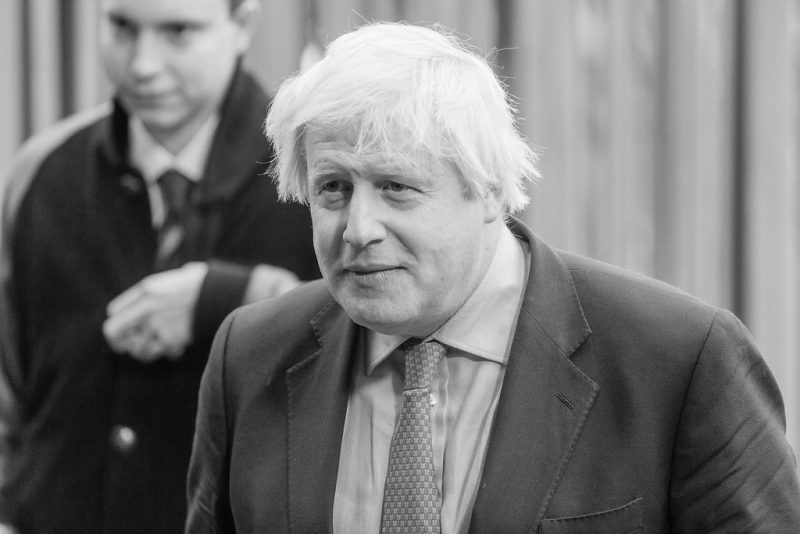Boris Johnson will survive the first hundred days of his Premiership if he delivers a Brexit divorce deal. There will soon follow opportunities for other events – a Budget, a Queen’s Speech, a General Election – to set out detailed plans for governing the country.
Much will be made of a new points-based immigration system, fashioned on the Australian model. The aim is to reassure the wage earners that their jobs will no longer be threatened by migrant labour, reassure the wage payers that they will get the labour they need, and reassure taxpayers that no-one will be allowed into the country if they do not have a contribution to make. The challenge will be to sell the policy as tough, liberal and fair in equal measure.
Mr Johnson’s record as Mayor of London serves as a reminder that he likes to champion infrastructure schemes which capture the public imagination: Boris bikes, cycle superhighways, a new Routemaster bus, a cable car over the Thames, an airport in the Thames estuary, a new garden bridge, an Olympic Stadium. He was not afraid to be seen to be spending public money, even on grand projetswhich turned out to be undeliverable, because at the same time he was cutting Londoners’ taxes. The Greater London Authority precept was cut by almost a quarter after adjusting for inflation during his eight-year tenure as Mayor, from £310 to £295.
Top of the Prime Minister’s wish list for the country is a better funded police force. His decision to recruit an extra 20,000 police officers by 2022 strikes a contrast with his predecessor. It also enables him to remind people that during his tenure as Mayor of London, crime fell by 20 per cent and the murder rate fell by half.
Other popular spending pledges include lower interest on student debts, minimum per-pupil funding in primary and secondary schools, full fibre broadband and more funding for health and social care (including a minimum of £350m extra per annum on the NHS, the cost of the UK’s gross EU contributions). These pledges are vital electoral symbols designed to reassure parents, young people and pensioners across the country that his “One Nation” Government is on their side.
An instinctive tax cutter, Mr Johnson looks set to embrace Reaganomics and borrow more in the short term to keep the post-Brexit British economy firing on all cylinders. His proposal to raise the higher rate threshold to £80,000 will be attractive to all who aspire to earn more. This will be balanced by raising the threshold for National Insurance contributions to provide an immediate fillip to the lower paid. Pensions reform will be designed to stop people leaving government service (particularly the NHS) early to avoid punitive taxes on their pension contributions.
Mr Johnson will scrap stamp duty on all homes under £500,000 and reform the tax at the top end. Even Treasury officials privately acknowledge that the 12% and 15% rates have gummed up the market and could be reduced to increase revenue yield. Mr Johnson is known to be attracted to the idea of vendors, rather than purchasers, being responsible for paying stamp duty. Such a measure may be condemned as unfair double taxation on the property owners of today, and it may simply move headline house prices up. But for the new home buyer, it removes another obstacle to acquisition of a new home.
We have been promised “a bold vision to rejuvenate our high streets”. It remains to be seen whether this will go further than a £675 million Future High Streets Fund, a suspension of business rate charges on ATM cash machines and measures to make it easier to gain permission for change of use. While high street shops long for a root and branch review of business rates, the new digital services tax could be the vehicle by which a greater balance in taxation between online and offline retail is achieved.
Out on the stump, Mr Johnson cracked jokes about the importance of continuing to manufacture Mars Bars in Slough, post-Brexit, to keep our children happy. He vowed to end the continuing creep of the nanny state, starting with a review of so-called “sin taxes” on sugary, salty and fatty foods. This is going to be a more freewheeling, freedom-loving, risk-taking administration than its predecessor – in line with the character of the man topping the bill.
Boris knows how to put on a show, and in the coming months we will see how hard he has been working out the choreography towards a Brexit deal. So far, his negotiating strategy is textbook. By saying he is willing to countenance No Deal, he will focus minds in the EU (and Dublin in particular) as to just how sub-optimal that outcome would be for them too. The closer they get to No Deal, the EU may just concede more. Both sides are rational, and both will play to their respective galleries throughout the negotiations. Around early October, we will find out if Mr Johnson’s reliance on rhetoric and refusal to be drawn on detail can leave open the door to an agreement. With negotiators on both sides keen to settle the terms of the divorce and move on, we should be optimistic that a new deal can be struck.
Adrian Pepper is a political consultant and CEO of the Pepper Media Group of communications companies.







